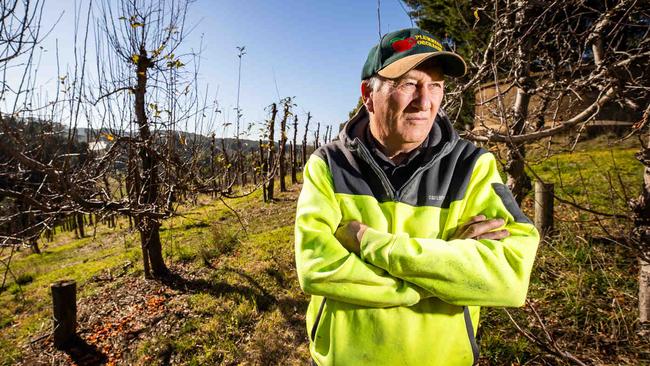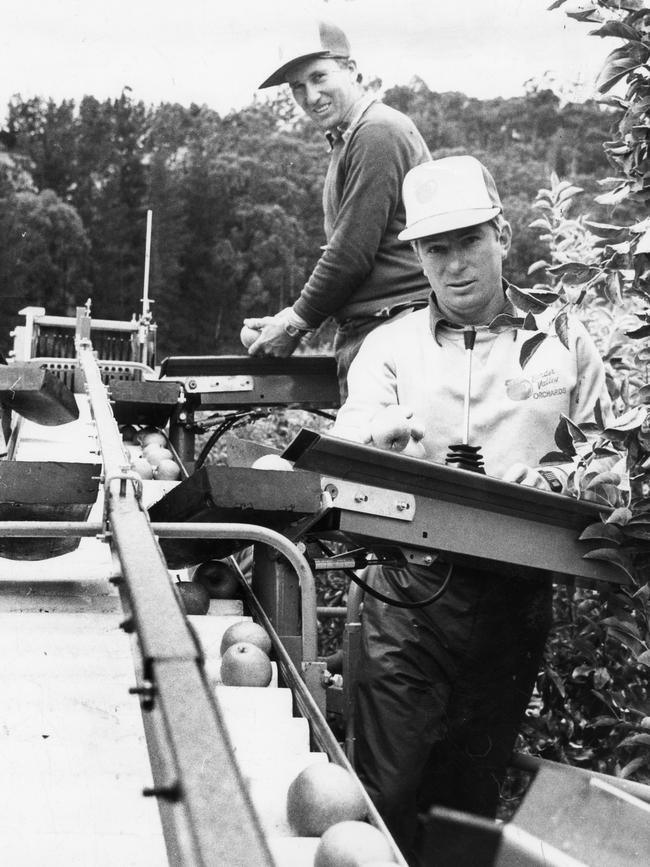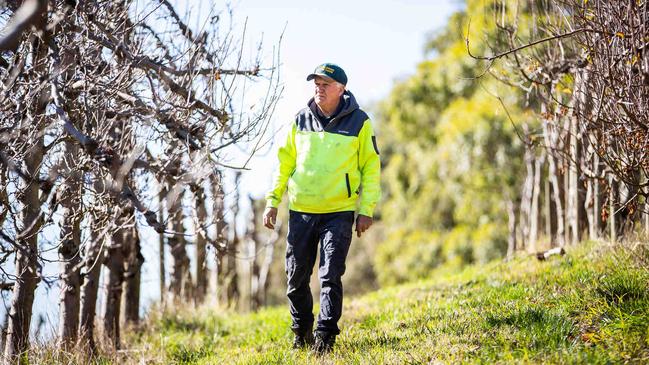Plummers Orchards ceases production after 120 years amid industry crisis
An Adelaide Hills apple grower has ceased production after 120 years, saying rising costs and a price squeeze from supermarkets have left the industry in crisis.

A fifth-generation apple grower in the Adelaide Hills is exiting the industry after more than 120 years, saying a perfect storm of soaring costs and red tape, and a supermarket-led price squeeze, has left the local industry in crisis.
The Plummer family has been growing apples around Forest Range since 1900, and was once one of the largest producers in South Australia.
But after years of financial struggles, fourth-generation grower Ian Plummer and son Gavin have sold off around 80ha of apple orchards in the region, warning more local growers are likely to leave an industry in crisis.
“We’ve sold all of our orchards off, pretty well now, because there’s no money in the industry anymore,” Mr (Ian) Plummer said.
“Costs are constantly going up – electricity goes up, your rates go up, your chemical use, your fertiliser, wages go up, and we have quality assurance that is over the top in this country – and yet we’re still basically getting the same price for apples that we were 15 or 20 years ago.
“The packhouses try and negotiate with the buyers – mainly the supermarkets – but they say ‘we’re paying this and either you supply at that price or you don’t supply’ – they’ll get it elsewhere.”

Plummers was once one of the state’s largest apple growers, producing around 5400 tonnes a year at its peak two decades ago, and previously exporting to places including the UK and South-East Asia.
More recently it ran a “pick your own” experience for customers at its Forest Range orchard.
However Mr Plummer said a slow decline over two decades accelerated once Covid-19 hit, making it particularly hard for the country’s higher cost apple growing regions.
Of the 80ha of orchards Plummers has sold to five separate buyers, just one plans to continue growing apples while the others are finding more lucrative uses for the land.
“Our biggest issue, especially in the Adelaide Hills, is the cost of producing fruit is more expensive than some other parts of Australia – especially like the Shepparton area, which is a flat area where we’re in hilly country,” he said.
“Our quality here in the Adelaide Hills is some of the best in the world. But the properties we’ve sold off are having white wine grapes planted on them because the grape industry, especially white wine, is making some money.
“I forecast that the Adelaide Hills will lose 50 per cent of apple growing in the next three to four years and there’s quite a bit already gone.”
Mr Plummer said he lost around $100 per bin (360kg) from his final crop last year, adding to the debts he’d accumulated after years of losses.
“When you’re growing 4000-6000 bins of fruit a year you’re losing quite a substantial amount of money,” he said.
“I’m really pissed off because this has been my heart and soul – I’ve gone 70 years old and I want to retire.

“My son was keen to continue on … he loved what he was doing but said ‘how do I pay the banks and the mortgage off if we’re not making money’?
“There’s needs to be a real tidy up in this country, and it’s got to be driven by governments, to look after primary producers Australia-wide.
“It doesn’t matter whether you’re an apple grower – all fruit and veg growers are having the same issue. We’re all having similar issues because we’re being screwed on our prices constantly. The supermarkets are dictating too much on prices.”
Major supermarkets Coles and Woolworths defended their approach with suppliers, adding that they were focused on providing fair market prices while at the same time delivering affordable produce to customers.
“We are engaging in collaborative conversations about price with our regular suppliers, taking into account supply and seasonal conditions,” a Woolworths spokeswoman said.
A Coles spokesman added that the supermarket chain had “actively supported the development of new apple and pear varieties through our Coles Nurture Fund grants”.



To join the conversation, please log in. Don't have an account? Register
Join the conversation, you are commenting as Logout